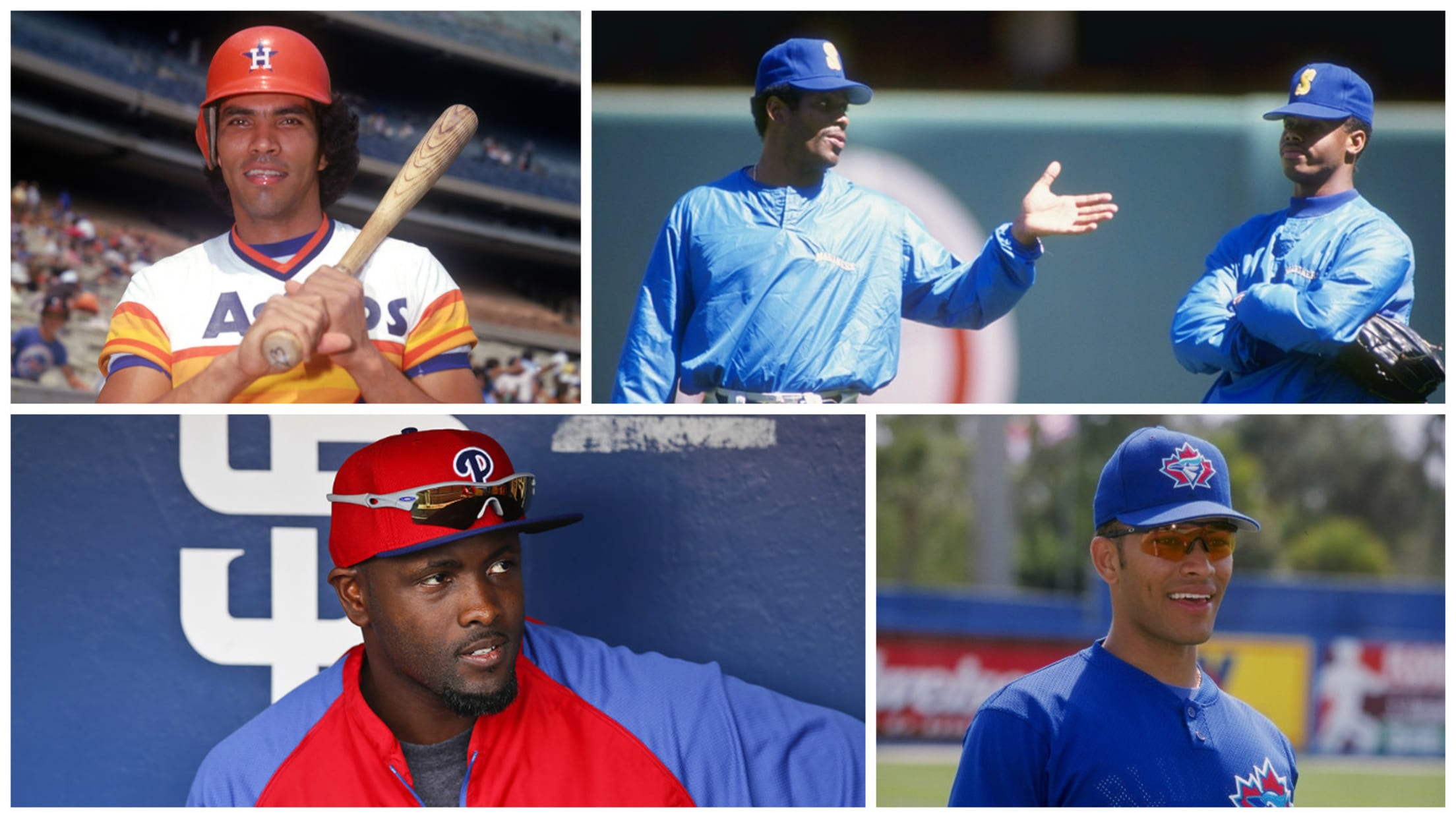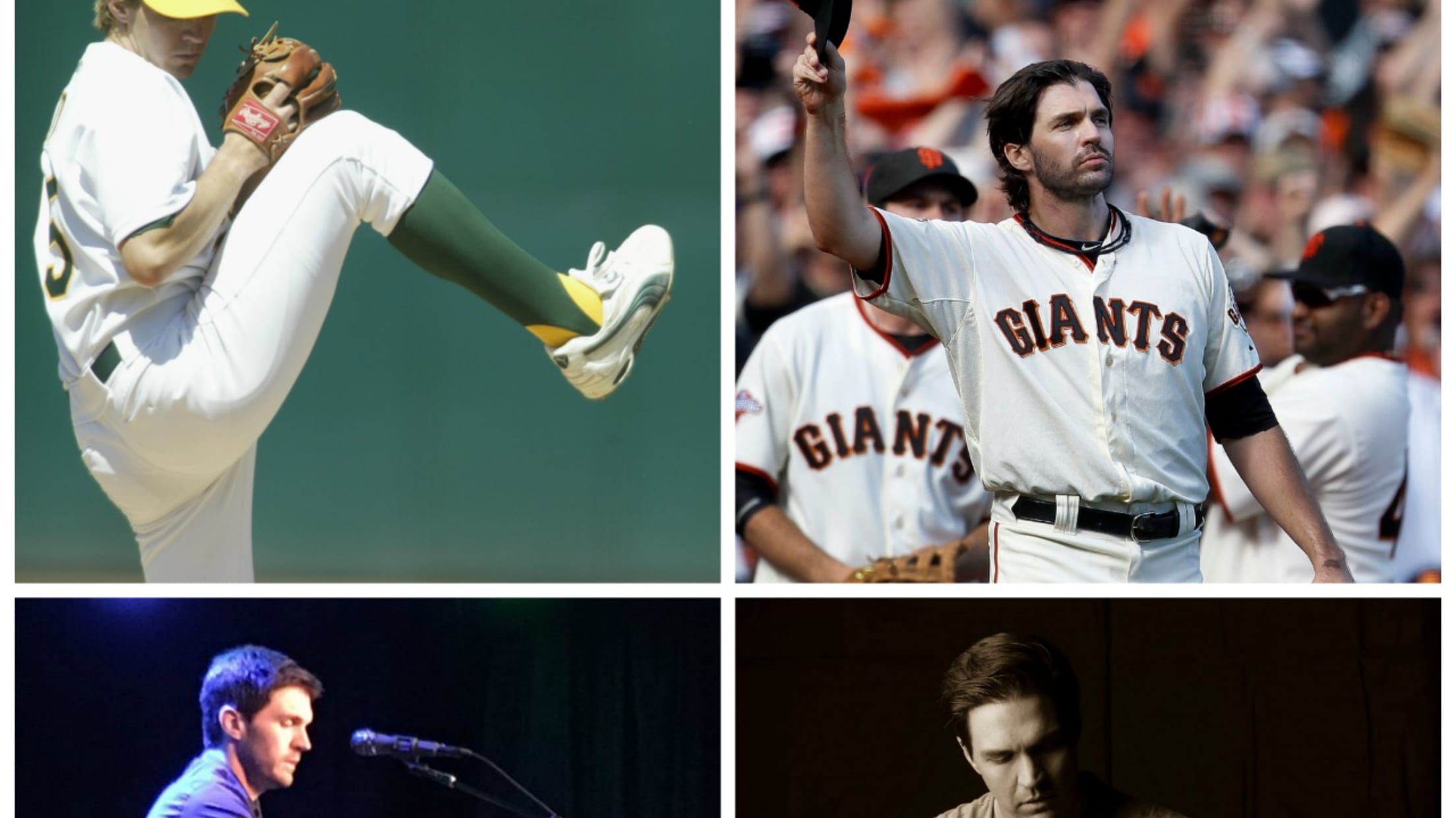Meet Zach Lind: Jimmy Eat World's drummer and the son of former MLB player/coach Jack Lind

Arizona-based rock band Jimmy Eat World recently announced a string of tour dates that will take them on the road with Beach Slang (in the spring) and Incubus (in the summer), in support of their new album, Integrity Blues.
It's with that context that Zach Lind, drummer and son of former MLB player and coach Jack Lind, spent some time talking with MLB.com about baseball and the similarities he sees between manning a drum kit and standing in the batter's box.

Your father, Jack, was a player and then a coach for several Minor League clubs. Who's your team?
Zach Lind: My favorite team is my hometown team, the D-backs. We traveled around a lot, and my dad went from team to team when I was young. He worked for a bunch of different teams, so my allegiance would sort of switch depending on what happened with him. Once he retired and the D-backs were around … it just made sense.
Who was your favorite player to watch growing up?
Well, I loved Pete Rose. I thought he was amazing to watch. I loved Eric Davis. My dad used to work for the Reds and coached Barry Larkin in the Minor Leagues, so I always enjoyed watching him.
Who else … I mean, obviously Nolan Ryan was the pitcher I thought was just the best. I always really loved watching Paul Molitor hit. Loved his swing. I remember as a kid really liking Jack Clark from the Giants, too. So a bunch of different players.
Did you play baseball?
Yeah, I played up through high school and then quit my high school team because I was really more interested in … I mean, that's right when Jimmy Eat World started, when I was a senior in high school. I kinda thought my coach was a bum, and I wasn't really having fun, so I figured I'd bail on baseball and focus on the band. I guess that worked out. (laughs)
In the alternate world where you had picked baseball over music, what position would you have played?
I don't know, man. I did a mixture of outfield, infield, and I pitched … I'm not really sure where I'd have ended up, though. I was probably, at that point, a better pitcher than anything else, I guess.
From your life around baseball, what's your most favorite and least favorite memory?
Oh, man. Well, obviously when the D-backs won the World Series, that was amazing. I was actually watching that game in the middle of the night in Germany. We found a dude with the label that had a weird sports package that let us watch it -- and this was back in like 2001. It's a lot easier now to find American sports overseas on TV, but back then it wasn't nearly as easy.
So that was awesome.
I remember when my dad was a Minor League manager, there'd be times when I'd be at the games and brawls would bust out. There was one brawl where the pitcher sucker-punched my dad in the back of the head.
Oh, no.
Yeah, that was kind of … that'd maybe be my least favorite moment.
Do you have any strong opinions on the various hot-button baseball issues, such as whether the designated hitter should be in both leagues or no leagues?
I don't like the DH. I've always referred to the American League as "Arena Baseball." I like the idea of guys like
You get to see pitchers like
Yeah, let's get back to when you had guys like Babe Ruth -- a good pitcher and a good hitter. Let's raise the bar a little bit, you know?
Any thoughts on things like the pace of play, instant replay, that sort of aspect of the game?
I think there's something uniquely subversive about baseball, in a sense. When you go to a game you just kinda go there to chill, there's no hurry. I think there's a sort of built-in vacation that, if you're so worried about the pace, if you're trying to make the game faster … I mean, let's provide an alternative to the rest of life, which is so busy and packed with stuff. But I'm also not beholden to anything regarding ratings or any of that.
In a sense, drumming requires the same kind of mental focus, clarity and rhythm that isn't much different from standing in a batter's box or playing baseball. Do you agree with that?
One hundred percent, yeah. In the end, you're hitting things. When you hit a baseball, the technique, the way that you strike the ball, matters a great deal. You can use the same amount of physical force without that technique, and you're not going to hit the ball as consistently. So it's very, very similar. I think my history with baseball has helped me a lot with drumming, because the main thing I focus on as a drummer is consistency. When I hit the snare, and then I hit it again, I want those two sounds to be similar.
And if I have a technique that puts my hand or my arm in a position that's going to be more erratic, it won't be as consistent. It's like golf, too. You're using a combination of things, creating speed by using technique and leverage, not just strength. With drumming, you'll see guys and they don't look like they're hitting the kit hard, but there's a lot of noise coming off the riser. Then there are guys that look like they're hitting the kit really hard, but their technique isn't hitting the drum in a way that's creating the most impact.
In the end, if you're playing in a band for 20 years and you have that [inconsistent] technique, you're going to get injured, you're going to have issues.
So I think yeah, it's all totally connected.
This interview has been edited for clarity and length.





